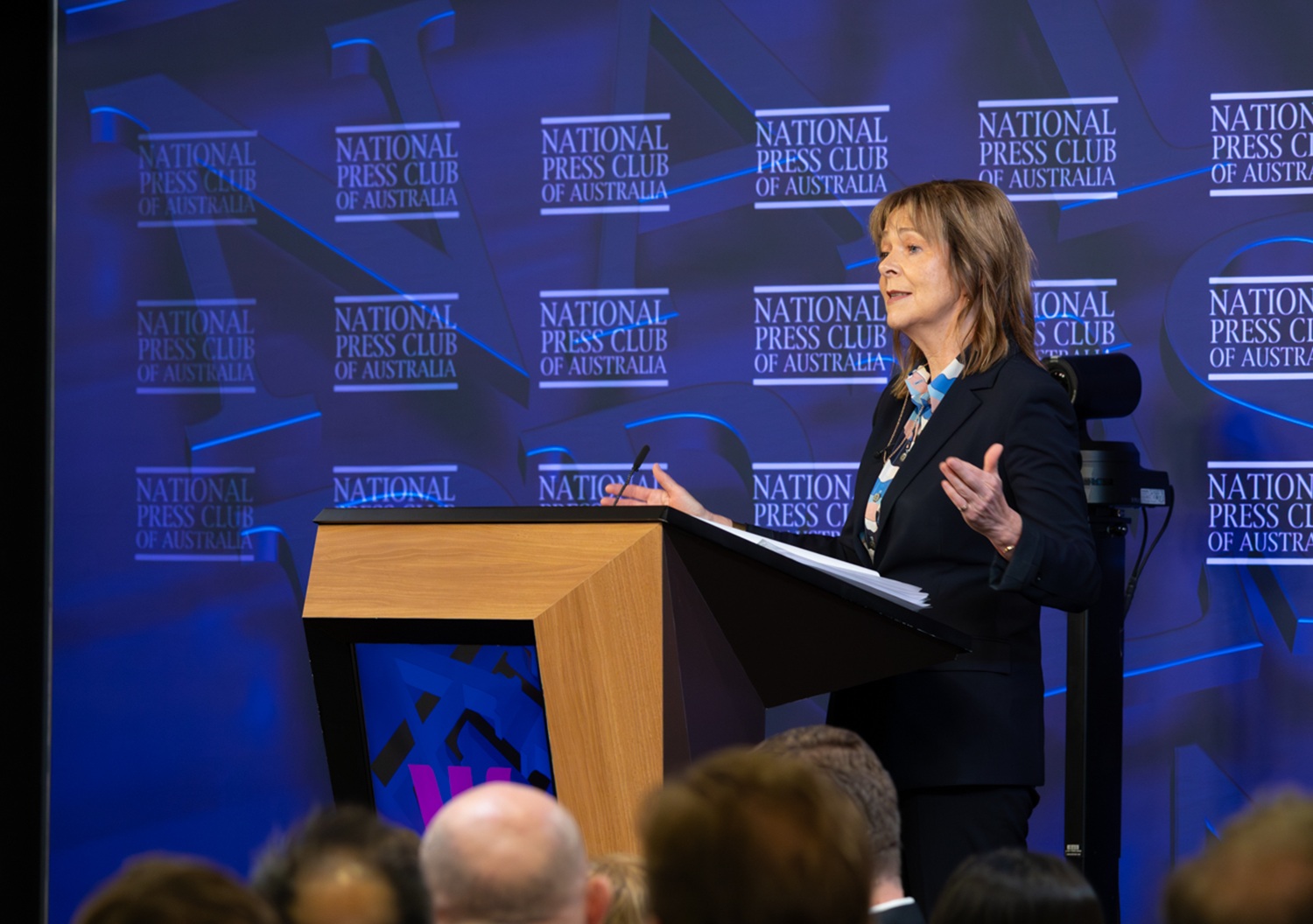
ACTU President Michele O’Neil says shorter working hours are good for workers and employers. Photo: Michelle Kroll.
Australian unions have proposed moving to a four-day work week ahead of next week’s Economic Reform Roundtable talkfest in Canberra.
The Australian Council of Trade Unions (ACTU) says Australians would benefit from a shorter working week, and at the meeting it will propose a four-day model where appropriate. It says workers deserve to benefit from productivity gains and technological advances, and reducing working hours would be key to lifting living standards.
Its proposal would see pay and conditions – including penalty rates, overtime and minimum staffing levels – protected to ensure the reduced work week wouldn’t result in a loss of pay. It says sector-specific models for reducing working hours might include adding more rostered days off, increased annual leave, and/or redesigning rosters to provide increased predictability, security and work-life balance for workers.
The ACTU’s proposal comes after a study recently published in Nature Human Behaviour found that a four-day work week boosts performance, reduces burnout, and improves employee health and retention. The study examined 2896 employees in 141 organisations in Australia, New Zealand, Ireland, Canada, the UK, and the US.
ACTU President Michele O’Neil said shorter working hours were good for workers and employers.
“They deliver improved productivity and allow working people to live happier, healthier and more balanced lives,” she said.
“Unions want all Australians to benefit from higher productivity – not just those with money and power.
“Productivity growth does not automatically translate to higher living standards. If that were the case over the past 25 years, the average worker today would be around $350 a week better off,” she added.
“For workers in some sectors, shorter working hours can be delivered through moving to a four-day work week. For other people, this could be achieved through other ways, such as more time off or fairer rosters.
“A fair go in the age of AI should be about lifting everyone’s living standards instead of just boosting corporate profits and executive bonuses.”
As expected, industry groups have pushed back against the proposal.
Australian Restaurant and Cafe Association (ARCA) CEO Wes Lambert said hospitality wasn’t like an office job.
“We can’t cram service into fewer days,” he said.
“A blanket four-day rule would push office attendance into Tuesday–Thursday, leaving Mondays and Fridays even quieter. That’s a death blow for CBD cafes already struggling, with a one in 10 closure rate according to Creditor Watch.”
Australian Industry Group Chief Executive Innes Willox took his organisation’s criticism of the proposal a step further.
“Unions have offered up another populist, anti-productivity thought bubble with a proposal that employers must bridge a four-day week with reduced working hours but maintain wages at their current rate,” he said.
“This comes at a time when the Reserve Bank of Australia yesterday (12 August) told us we face declining living standards because of falling productivity.
“As we prepare for an economic roundtable next week to lift productivity when attendees have been explicitly told that discussion on workplace relations is off the table, this is the only thing unions can offer – measures that will turn back time, cut productivity, make Australia less attractive to much needed investment and lead to fewer jobs,” he added.
“With this idea, based off a loaded academic survey of a trial including 10 companies that provided at best mixed results, along with Victoria wanting to legislate two days working from home for every worker, it seems the union movement and parts of Australian government don’t want Australians to work at all. The trend is that companies who have trialled a four-day week are quietly dropping the idea because of reduced output and a drop in organisational capacity.”
When asked about the ACTU’s proposal at a press conference in Brisbane on Wednesday, Prime Minister Anthony Albanese jokingly said he’d just be pleased to work a six-day, 23-hour work week.
“Look, people will come up with a whole range of ideas and you know, that’s not a bad thing,” he said.
“I think a lot of people would like to have a five-day working week, and so … these ideas will come up.
I’m not going to give a running commentary on all of them, but certainly the government has no plans,” he added. “In a range of industries, sometimes people work different hours.
“The ACTU of course is entitled to put forward whatever ideas it likes. But that doesn’t mean, as I’ve said, that it’s government policy because someone put forward an idea.”
In a separate press conference, Opposition Leader Sussan Ley put the proposal down to a bit of game playing by the ACTU.
“It sounds like the usual stitch up from the unions, putting out an ambit claim so that the government can play a little game,” she said.
“All of these things are in workplace relations laws as it is right now, including the Fair Work organisation. So I just put it down to a bit of game playing.”











